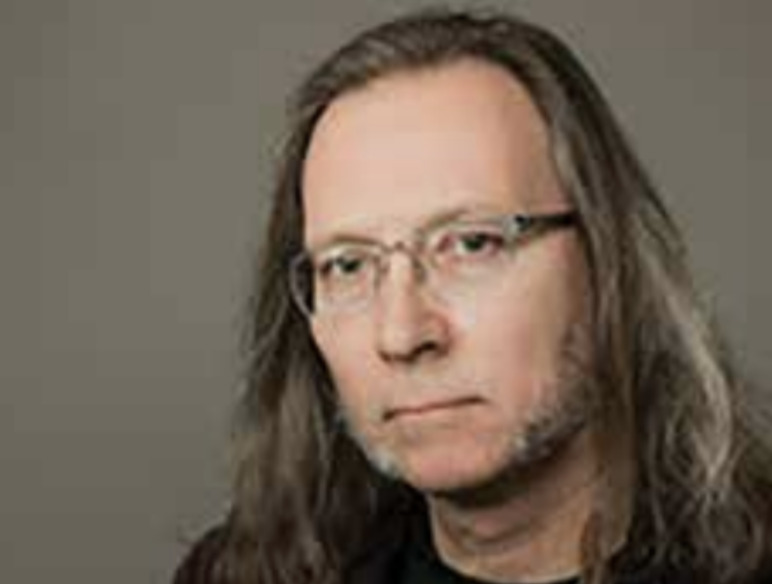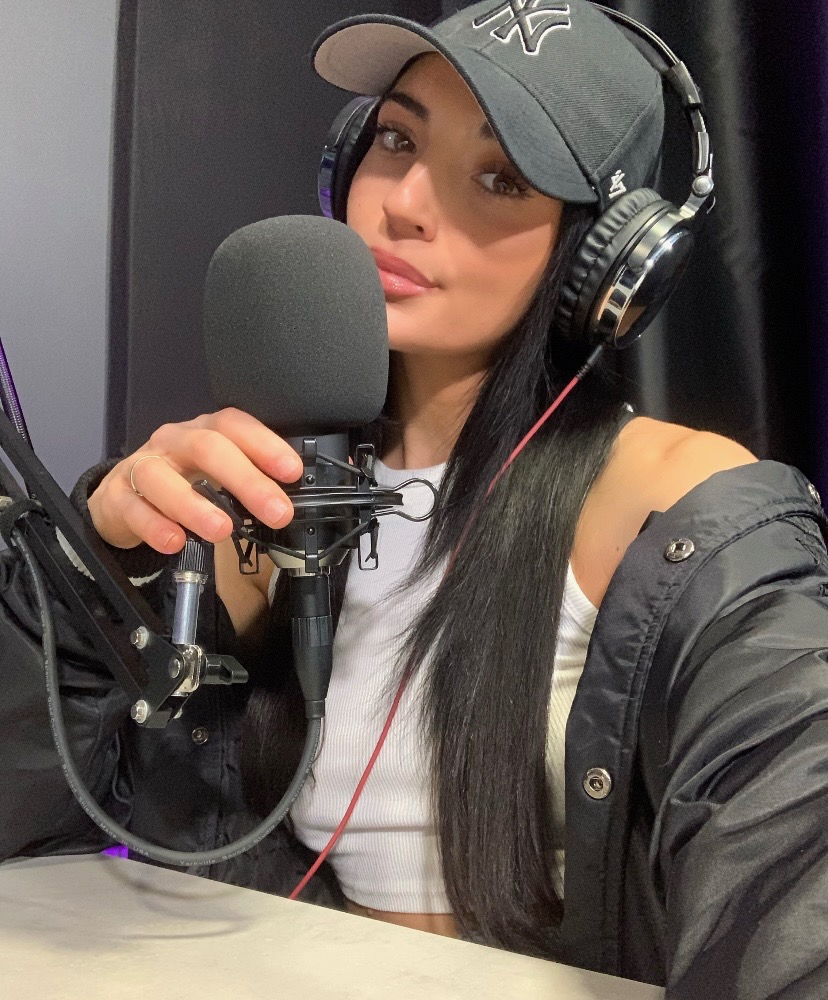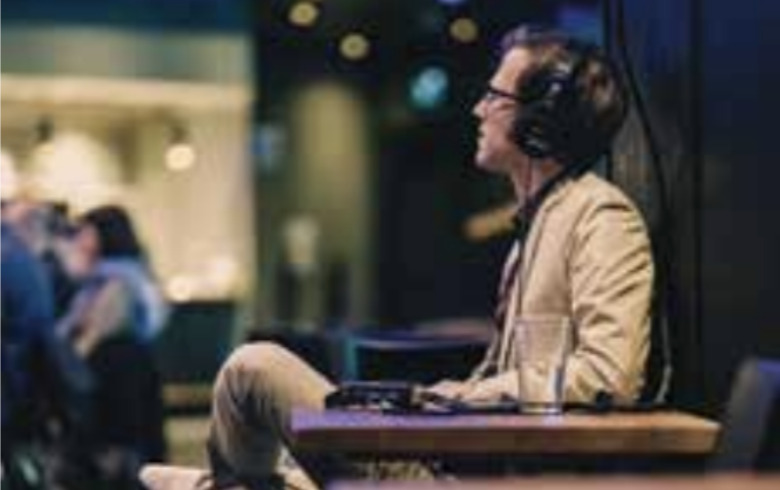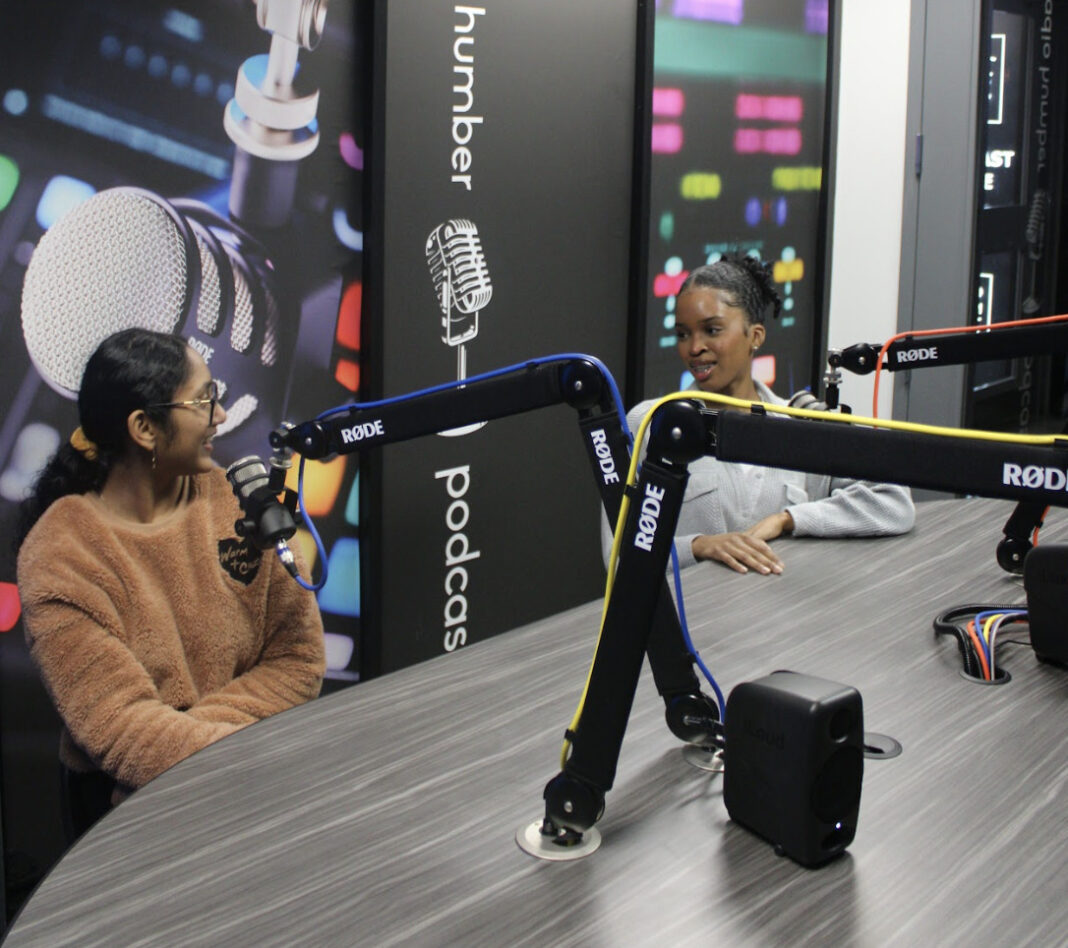Where Podcasts Currently Are
By Liana Naccarato
The Daily, SmartLess and Dateline NBC are some of Canada’s most popular podcasts. According to ‘Made In CA’, 71 per cent of Canadians have listened to at least one podcast in their life and 30 per cent of those listen five hours a week.
In just over a decade, podcasts have evolved from niche audio shows to a global phenomenon, captivating audiences across demographics. What began as an experimental medium has now become an integral part of modern entertainment and education.
With millions of shows covering every imaginable topic, podcasts offer unparalleled diversity and convenience, catering to varied tastes and preferences. Podcasts have not just come far; they’ve established themselves as an enduring cultural force.
Paul Cross has been podcasting for a decade. ‘Cross Talk’ is one of his public podcasts where he comments and analyzes things that are happening in contemporary media, sometimes in comparison to historic media.
“That one was really a matter of needing an outlet to say some things that I feel I needed to say from a position of let’s say, decades of experience in audio media,” says Cross. He says he needed a creative outlet for “things I think about and would write about and just started thinking more out loud about.”

The podcast is about media history, and his commentary, and analysis of things that are happening in contemporary media.
What makes a good podcast? Cross believes that part of it is about being happy with the content you create and put out, if you are finding a listener for your podcast, “I don’t know if that’s a pipe dream, but that’s a long way off for a lot of podcasts. You can judge your standards, your success I would think by any of those pillars depending on what motivates you to put out,” says Cross.
Cross enjoys listening to repackaged radio, Daily News podcasts and pieces that explain aspects of media. He also enjoys drama series, unknown voices he listens to a large range of podcasts.
“I’ve always loved radio, so I love repackaging old radio,” says Cross. He brings that love of radio to his students in the Radio Broadcasting program, at Humber College
There’s something really primal about the human voice.
Paul Cross
According to ‘Exploding Topics’ there are about 3.02 million podcasts in the world, hitting an all-time high in 2020.
Since the pop up of many podcasts, some may wonder if it is too many. Cross doesn’t believe so, “I don’t think there’s any danger of having a great preponderance and wealth of podcasts to choose from,” says Cross. “If the content is of value to you to produce, it’s probably of value to someone else to listen to,’ says Cross.
Why so many people like podcasts is simple. He says it is because people like radio. “Listen, there’s something really primal about voice, about the human voice… It’s the voice that appeals to our
most intimate senses,” says Cross.
Francesca Centofante of Keeping it Cento podcast agrees, even encourages people to start a podcast. “I feel like it’s nice that people are putting their opinions out there and I don’t think it’s over saturated,” says Centofante. She has been podcasting for nearly five years with her sister Sam.
“We pride our podcast is on the hyper relatable,” says Centofante.

Her podcast is a lifestyle with a unique sister dynamic, “What makes us a bit different from other
lifestyle podcasts is just our sisterly banter,” says Centofante. Her advice for what makes a successful podcast would be to not be afraid of your opinions.
“Being who you are, the podcast is genuine and that would attract the community you want to have, and also attract a lot of listeners who will relate to you more than you think,” says Centofante.
Podcasting is often associated with news and radio. However, Centofante did not come from a media background, she learned everything she needed with her sister.
“Do your research and as long as you have people to help you, or even network with people in the media space, it can help a lot,” says Centofante. She want’s people to know that creating a podcast is a lot of work, “It’s a lot more than just sitting down and talking about a topic,” says Centofante.
Like Centofante, Kevin Sexton believes many people don’t know what goes on behind the scenes.
“I think some people get into it without really thinking about how much work it is or really thinking about the long-term vision,” says Sexton.
Sexton has been podcasting for eight years. He studied radio at Humber during a time when there
weren’t many podcasts. What drew Sexton to podcasts was the experimentation element of it.

“There was a sort of casualness and a kind of fun to it, that I think it didn’t exist on terrestrial radio,” says Sexton.
He currently creates for Canadaland. Canadaland reports on stories in the country and offer analysis of Canadian media, often with unheard voices. Sexton says it’s a good thing that podcasts are constantly growing. They can be another place for people to be better informed.
“Whether it’s entertaining and it’s also, listening to other people open up I think has value to it,” says Sexton.
He still feels there more room for startups.
“It’s really a medium that you can play with and experiment with and you can kind of grow as you go,” says Sexton.

